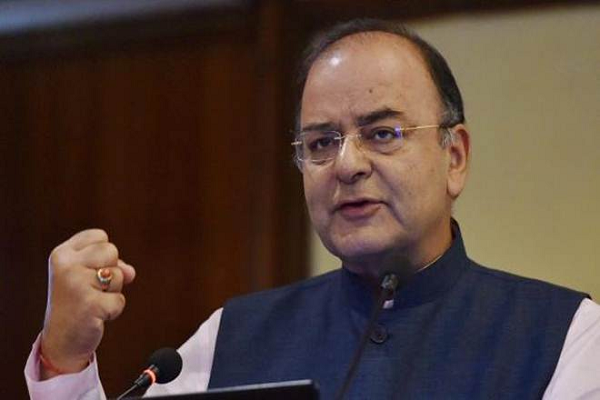
by Editor | May 25, 2021 | Employment, Overseas
 Mumbai : There has been a sharp decline among Indians seeking jobs in two top destinations — the United Kingdom by 42 per cent and US by 38 per cent – attributed mainly to the political situations there, a new survey by top global jobs portal Indeed has revealed.
Mumbai : There has been a sharp decline among Indians seeking jobs in two top destinations — the United Kingdom by 42 per cent and US by 38 per cent – attributed mainly to the political situations there, a new survey by top global jobs portal Indeed has revealed.
Similarly, there has been a fall in the number of Indians wanting to work even in the United Arab Emirates (UAE) by 21 per cent, based on searches on Indeed, as per the survey results for 2016-2017 released here on Wednesday.
The report said that the prospects of Brexit could be a deterrent for Indian jobseekers in the UK, as other countries like Germany and Ireland have witnessed a 10 per cent and 20 per cent respectively increase during the same period.
Indeed India Managing Director Sashi Kumar said as one of the world’s largest hubs for IT talent, India has historically seen a steady outflow of IT professionals to countries like USA, UK and Australia.
“The new data shows an apparent reversal of that trend. The steadily growing Indian economy coupled with political uncertainties abroad has persuaded highly skilled Indian talents to stay back and find jobs here, which in turn has fostered a thriving ‘start-ups’ scene,” said Kumar
In fact, he said the research shows an overall five per cent decline in Indians looking to move abroad for job opportunities, while there has been a whopping 25 per cent increase in people from UK seeking jobs in India, and a 170 per cent increase in job-seekers from Asia-Pacific region to India.
He attributed the growing popularity of India as an ’employment destination’ to initiatives like ‘Make In India’ and ease of doing business, and the latest figures indicate a trend of people working in UK and Asia-Pacific regions willing to return to India.
Despite the declining figures, the USA still remains the top choice with 49 per cent of people searching for job opportunities there, followed by UAE (16 per cent), Canada (nine), UK (five), Singapore (four), Australia (three), Qatar (two), Bahrain and South Africa (one percent each).
In 1960, there were around 12,000 Indian immigrants to the USA, which increased to 2.4 million by 2015, making Indians the second largest immigrant group in the US after Mexicans.
There are around 1.50 million Indians living in the UK, making them the largest single ethnic minority group, accounting for nearly one-quarter of the total ethnic minority population in that country.
—IANS

by Editor | May 25, 2021 | World
 London : Health officials Sunday confirmed that 233 people were being treated after a suspected chemical leak along Britain’s southern coast.
London : Health officials Sunday confirmed that 233 people were being treated after a suspected chemical leak along Britain’s southern coast.
The officials in East Sussex confirmed the news on Sunday night after British emergency services evacuated a beach in Sussex, reports Xinhua news agency.
On Sunday morning, some 50 people on the beach at Birling Gap reported painful, stinging eyes and breathing difficulties after a “mist” appeared.
The police said there was an “unknown haze coming in from the sea” affecting the East Sussex coastline.
Surrounding roads have been closed and the public is being advised to avoid the area.
Emergency services warned people near east Sussex coast to stay away from beaches and to keep windows closed.
A police spokesman said the first report came in where “up to 50 people had been affected by irritation to eyes and throats”.
—IANS

by Editor | May 25, 2021 | Islamic Finance, News

Europe is increasingly showing interest in Islamic finance education. There are 109 institutions that provide Islamic finance education in Europe, 63% of them in the UK.
In today’s connected world of business, Islamic finance is a concept that people working in the banking and finance industries are likely to come across in their careers. Islamic finance, despite its label, is not limited to Muslim countries. It has shown growth globally, including in Europe.
Total Islamic finance assets worldwide are projected to grow to $3.5 trillion by 2021 from $2 trillion currently, according to Thompson Reuters’ Islamic Finance Development “Resilient Growth” report published in 2016.
There are 622 institutions providing Islamic finance courses worldwide, and 201 provide Islamic finance degrees, according to the report.
Europe is increasingly showing interest in Islamic finance education. There are 109 institutions that provide Islamic finance education in Europe, 63% of them in the UK.
Britain issued its first Islamic bond (sukuk) worth £200 million (over $250 million), according to a statement by the treasury published on the government’s website in June 2014.
In UK
Being home to three million Muslims, according to the Office of National Statistics in 2016, the UK is a leading hub for the Islamic finance industry in Europe. It also has a fully Shariah-compliant retail bank: Al-Rayan Bank (formerly Islamic Bank of Britain).
“Britain is today the leading center for Islamic finance in the West, including British higher education institutions leading the non-Muslim world in the teaching of Islamic finance,” said Nyra Mahmood, managing director of the UK-based Simply Sharia Human Capital.
She emphasized the important role of financial technology can play in further introducing Islamic finance and banking.
“The opportunities emanating from the FinTech scene and the ethical financial space gives rise to how the UK’s Islamic finance can look at shaping and taking the lead in fulfilling the wider needs of society through technology and innovation, especially with a younger, more socially active generation wanting to join the industry,” she said.
She added that the younger generation expects more from their money, as they are socially conscious and want to see companies embrace their corporate social responsibility along with being part of a financial services sector.
“These are the issues driving a new generation of Islamic finance practitioners and consumers alike, both Muslim and non-Muslim in Europe and beyond.”
Mahmood said factors that can affect Islamic finance moving forward in the UK, directly and indirectly, include the aftermath of the Brexit vote, the UK’s economic outlook for 2017 onward, and customers’ needs. “With this in mind, the UK’s Islamic finance industry is well positioned.
“As the country looks beyond the EU, there’s an opportunity to align the UK with investors and partners from other Islamic hubs, namely the (Persian) Gulf Arab countries and Malaysia, which is already happening,” she said.
In a survey by Al-Rayan Bank in 2014, 57% of non-Muslim participants said Islamic finance was relevant to all faiths because they believed it was ethical.
In Spain
Spain is one of the countries curious about Islamic finance. One of its top business schools, IE Business School based in Madrid, has a center that teaches and researches Islamic finance.
“There’s a lack of knowledge in Islamic finance. Everybody is looking but no one is pushing yet,” Gonzalo Rodriguez, general coordinator at the Saudi-Spanish Center for Islamic Economics and Finance, said.
“After the financial crisis (in 2008), ethical banking became much more popular, especially among young people. We believe it’s fair, ethical and based on real economy, and we try to spread this approach.”
“We’re trying to spread knowledge of Islamic finance in Spain, and to reach out to all players to explain to them what Islamic finance is, its potential in Spain, and the opportunities we have for Islamic finance in the country,” Rodriguez said.
COURTESY: https://financialtribune.com/articles/world-economy/58656/islamic-finance-spreads-globally

by Editor | May 25, 2021 | News, Politics
 New Delhi (IANS) Finance Minister Arun Jaitley on Wednesday said the UK has turned down India’s request for deportation of liquor baron Vijay Mallya, but added that he can be extradited once a chargesheet is filed against him.
New Delhi (IANS) Finance Minister Arun Jaitley on Wednesday said the UK has turned down India’s request for deportation of liquor baron Vijay Mallya, but added that he can be extradited once a chargesheet is filed against him.
Jaitley, who is Leader of House in Rajya Sabha, was speaking after Janata Dal-United (JD-U) member Sharad Yadav raised the issue in the house.
“Government has said we will get him back. UK has clearly denied it and said there is no question of sending him back. This man took so many things from here and government was sleeping,” Yadav said.
Jaitley, in response, said that his deportation was sought by the investigative agencies, but was turned down by the UK.
“Investigative agencies are probing the wrongdoings. In course of the investigation, since his diplomatic passport has been cancelled, the investigative agencies sought his deportation,” Jaitley informed the elders.
The minister, clarifying that he is still collecting information, said: “What I have got to know so far is that deportation is not allowed when a person entered on a valid passport and then the passport is cancelled.”
“The process is that when a chargesheet is filed, we seek extradition. It is another legal process,” he said.
Jaitley added the UK has done it in the past as well.
The British government has turned down India’s request to deport Mallya and has called for requesting mutual legal assistance or extradition.
“They have asked the Indian government to consider requesting mutual legal assistance or extradition,” MEA spokesperson Vikas Swarup said in a statement on Wednesday.
Mallya was a member of Rajya Sabha before he sent his resignation last week. The resignation came as the ethics committee of the upper house had recommended that he should be expelled.

 Mumbai : There has been a sharp decline among Indians seeking jobs in two top destinations — the United Kingdom by 42 per cent and US by 38 per cent – attributed mainly to the political situations there, a new survey by top global jobs portal Indeed has revealed.
Mumbai : There has been a sharp decline among Indians seeking jobs in two top destinations — the United Kingdom by 42 per cent and US by 38 per cent – attributed mainly to the political situations there, a new survey by top global jobs portal Indeed has revealed.


